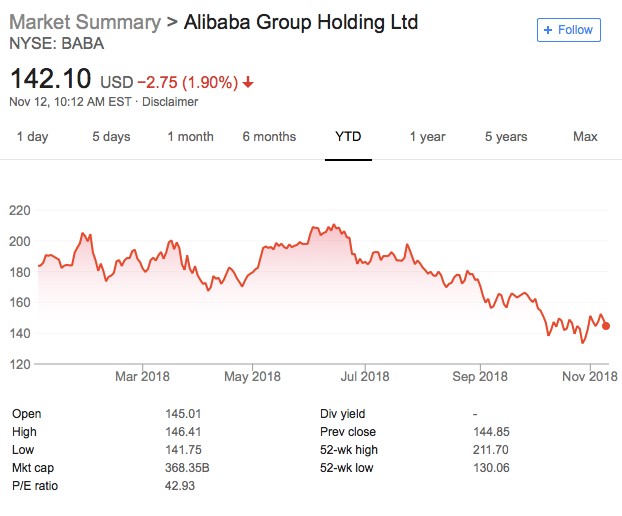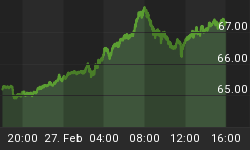China’s Alibaba e-commerce giant launched the ‘Singles Day’ shopping event in 2009, with $7.8 million in sales. The same event in 2017 brought in over $25 billion, but this year’s event—on Sunday—went even further, with Alibaba selling almost $31 billion in goods.
That means it outsold Amazon’s biggest day, the Prime Day sale in July, in 10 minutes, with Amazon estimated to have made some $4 billion in sales that day. And last year’s Black Friday and Cyber Monday events in the U.S., combined, saw sales of around $14.5 billion.
While Singles Day was originally launched in the 1990s as a celebration of bachelorhood for young men, it has since metamorphosed—thanks to Alibaba--into China’s biggest shopping day.
Alibaba’s promotional efforts ended up being soothing words to singles who are often shamed over their non-married status, with the very first festival opening with the slogan: “Even if you don’t have a boyfriend or girlfriend, you can at least shop like crazy”.
And they did.
And they do.
In fact, the day has become part of Chinese folklore, as Quartz points out.
Indeed, it is now shaping up to be the biggest shopping day in the world. Even a handful of U.S. retailers have started participating, and it’s now known as the 11:11 Global Shopping Festival.
It helps that Alibaba boasts 666 million mobile monthly active users—a figure that represents twice the population of the United States. Related: Dollar Rally Drags Down Commodities
But it also speaks to the state of the Chinese economy, because nothing serves as a barometer of Chinese consumer spending like 11:11, and Sunday’s sale shows that China’s middle class isn’t backing down, despite a trade war and despite Chinese government data that is showing economic uncertainty.
“I think you have to understand Alibaba and what Alibaba’s doing in the context of the long-term secular trend that’s developing in China, which is the rise of the Chinese middle class,” Alibaba Executive Vice Chairman Joe Tsai said in a company blog post after the event. “That trend is not going to stop, trade war or no trade war.”
Alibaba also noted that this year’s Singles’ Day saw over 40 percent of consumers buy from international brands, including Apple, Dyson, Kindle, Estée Lauder, L’Oréal, Nestle, Gap, Nike and Adidas. And the top-selling countries to China were Japan, the U.S., South Korea, Australia and Germany.
There will always be skeptics, though—many of them pointing out that Alibaba is using GMV (gross merchandise value) as the metric that came up with sales of $30.8 billion this weekend. Bloomberg, for one, says the GMV is an unreliable metric that doesn’t necessarily correlate with revenue.
But after 10 years of building up the Singles’ Day shopping event, there is no denying that it’s dwarfing major American shopping days.
It’s also a good omen for Alibaba CEO Daniel Zhang who will take over as chairman for legendary founder Jack Ma next year. After all, Ma credited Zhang with the idea for turning Singles’ Day into the biggest shopping day of the world.
Earlier this month, Alibaba reported its quarterly earnings, showing lower-than-expected quarterly revenue, while its stock has taken a bit of a beating this year. Part of the reason for that is extensive acquisitions. Still, the company’s core e-commerce revenue, which accounts for 84 percent of its total revenue, jumped 54.5 percent.

(Click to enlarge)
Indications of a Chinese economic slowdown helped along by a trade war might be a festering wound for the e-commerce giant, but it’s banking on the middle class to override this.
As Tsai pointed out recently, China’s “middle-class consumers have experienced significant real wage growth over the past decade, and they are looking for high-quality products to satisfy their discretionary spend and an increasingly sophisticated lifestyle”.
The bigger picture? Tsai is eyeing a Chinese middle class that is set to nearly triple by 2030, growing from 300 million to 850 million.
By Charles Benavidez for Safehaven.com
More Top Reads From Safehaven.com:
















